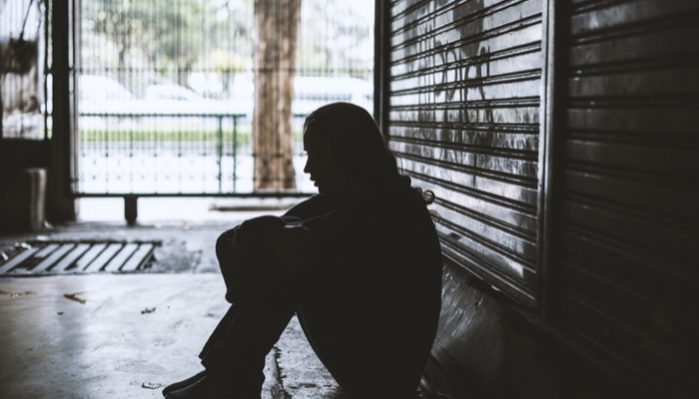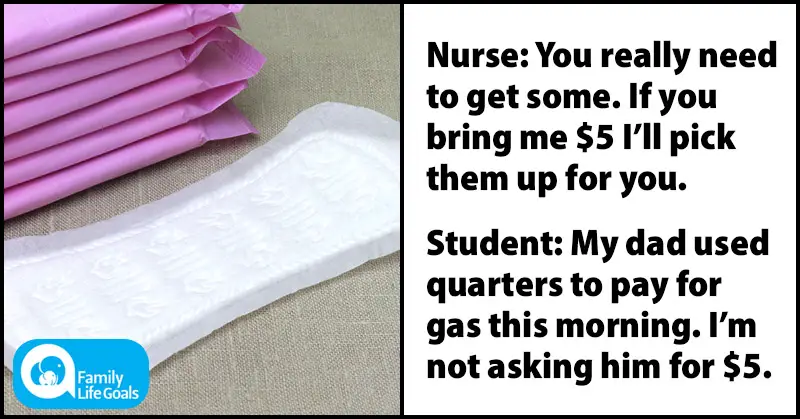For some of us, access to menstrual products is simply a matter of timing and convenience. If we’re in a period dilemma, it’s usually because we forgot to put a pad in our bag or stock up on tampons.
However, for many women around the globe (the U.S included), this is not the case. As opposed to timing and convenience, it’s the lack of access to feminine hygiene products.

Believe it or not, this is a real problem. Access to menstrual products can determine whether or not a woman can get to school or work. Moreover, a lack of access to period products also puts these women at higher risk for anxiety and depression and other serious health issues.
Sanitary Issues
A lack of access to menstrual products can mean significant sanitary issues. According to research conducted by WaterAid, in Afghanistan: (1)
- 70% of girls surveyed responded that during their period they could not eat certain foods.
- 70% answered that they could not wash/shower or bathe.
- 30% answered that they do not attend school.
- Just 15% of surveyed girls answered that there were no restrictions placed on them.
Results were similar in Nepal, and West Bengal, and other areas of India where 51% of girls didn’t take a bath for the entire length of their period. These alarming statistics highlight the issues that women have in merely being able to clean themselves during menstruation. (1)
UK Study
In a UK study of 1,000 people with periods, 500 women reported that they had, at some point, lacked access to menstrual products. (9)
As a result, almost two-thirds said their confidence had been dealt a blow, while 39% had anxiety and/or depression. More than a third said they had difficulty in social situations and the people who’d experienced period poverty also experienced more problems with romantic relationships. (9)
Period Poverty (Canada & U.S)

The inability to afford menstrual products is a particular concern for women in Canada.
A national survey found that one-third of Canadian women under 25 have struggled to afford hygiene products to manage their periods. More than 77% of participants agreed that feminine hygiene products are one of the top three material costs for women.
“What all people who menstruate know, and what this information underscores dramatically, is that menstrual hygiene product are not a luxury. Like toilet paper, soap and water, hygiene products are not optional. They are necessary and essential to women’s and girls’ health, comfort, and participation in work, school, and society.” – Caroline Riseboro, the president and CEO of Plan International Canada (6)
The situation is no better in the United States, where poverty overwhelmingly affects women. According to 2014 statistics from the Shriver Report roughly 42 million women live in, or proximity to poverty. (7)
The health risks and shame facing menstruating homeless people, who, unable to access pads and tampons, often resort to newspapers, socks, rags or even bleeding into their clothes, and lack access to regular—and clean—toilet and shower use, are almost unbearable. (8)
What Is Being Done?
Luckily in the last few years, there has been an effort to target this very real issue. Non-profits like Days for Girls work to provide girls and women around the world with sustainable hygiene and health education.
Plan International is an independent global organization that strives to advance children’s rights and equality for girls.
Organizations like these are determined to help women/girls, whether it’s in the U.S or across the globe to get proper access to hygiene products. Access to menstrual products is not only crucial for women’s health, but it also empowers them to be a thriving member of society.
School Nurse Begs Parents To Donate Feminine Hygiene Products (Goes Viral)
A school nurse took to Reddit to put out a desperate plea for feminine hygiene product donations.
“Out of 400 menstruating girls maybe 20 have a hard time getting access to pads or tampons,” she wrote on Reddit, regarding students at her school. “That’s still 20 too many.”
Please donate feminine hygiene products to your local school nurses. So many students can’t afford them.
byu/medicalprofessional1 inTwoXChromosomes
Thankfully, the post has already racked up close to 700 comments and seems to be getting much-needed attention. Here is hoping that this nurse’s plea will not only continue to make headlines but also translate to concrete action.
How You Can Make a Difference
Anything helps! Tweeting about this very serious issue, posting to Facebook or Instagram, donating to a petition, signing a petition, or even posting a petition. All of these things have the power in advancing the dialogue around women and menstruation. No girl or women should have to worry about not having access to health-care products that are essential to their well-being. (8)

